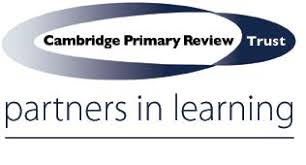Post 16 Provision
At Valence, we recognise that a student requires an individualised timetable. A student could be on an alternative curriculum (ImPACTS), an entry-level pathway, a GCSE / Level 1 pathway or a GCSE / Level 2 pathway or a combination. Students are not restricted by their achievement in other subjects to set their level in another. Thus, allowing the student to maximise their abilities and not be restricted by the uneven assessment profile that students with special educational needs often demonstrate.
This allows students to take the time they need to develop the skills and knowledge required for the course, complete any required coursework and allow plenty of time for the all-important examination preparation.
Students might start at entry level. These qualifications sit below GCSE and are Entry Level 1, Entry Level 2 and Entry Level 3 (highest). Each level is made up of units, which carry credits (One credit roughly equals 10 learning hours). This could take a student 1, 2 or more years when students can accumulate unit credits and build to an award (6 credits), certificate (13 credits) or diploma (37 credits).
This is a very popular pathway for our students who find the jump from National Curriculum to GCSE too great.
From this, students might progress onto a GCSE. In GCSE, as with entry level, students take as long as they require (as determined at the beginning of the course by looking at the students’ previous achievements and progress data).
As our results show, students are able to access these GCSEs with the appropriate special access arrangement s Access Arrangements. These are pre-examination adjustments for the student based on evidence of need and a normal way of working in the classroom setting.
Access Arrangements allow candidates/learners with special educational needs, disabilities or temporary injuries to access the assessment without changing the demands of the assessment. For example, readers, scribes and rest breaks etc. In this way, Awarding Bodies will comply with the duty of the Equality Act 2010 to make 'reasonable adjustments'. For further information, follow this link.
http://www.jcq.org.uk/exams-office/access-arrangements-and-special-consideration
In some subjects, students may excel beyond a GCSE. Currently, in Maths, Humanities and Art, we have the opportunity for individual students to continue to Level 3 qualifications, AS and A-levels.
At Valence, we strive to keep as wide a range of subjects, courses and experiences as possible available to all our students.
This diagram is a good explanation of how all the qualifications fit together, and the following website has additional information.
http://www.accreditedqualifications.org.uk/qualifications-and-credit-framework-qcf.html
Please see our list of the subjects offered and a link to the individual course descriptors within our curriculum section on the website.
In addition, there are many skills that students, particularly those at Valence, need to be taught. They do not come under an accreditation umbrella, but nevertheless are seen as an important part of our curriculum. Just because a student has completed a course, they may wish to continue with the subject. For example, Science, Computing and music.
Independence, which is one of our key skills, is developed through the introduction of supported study where independent study skills are developed, leading to sessions of independent study – allowing students to prepare themselves for the transition to further learning, where being responsible for their own learning is a vital requirement. There is a higher expectation that the students will arrange their own time throughout the day, including planning of appointments and physical management routines.
All students in Post 16 have work placement experience supported by staff from school to give them an opportunity to have a greater understanding of the world of work.





